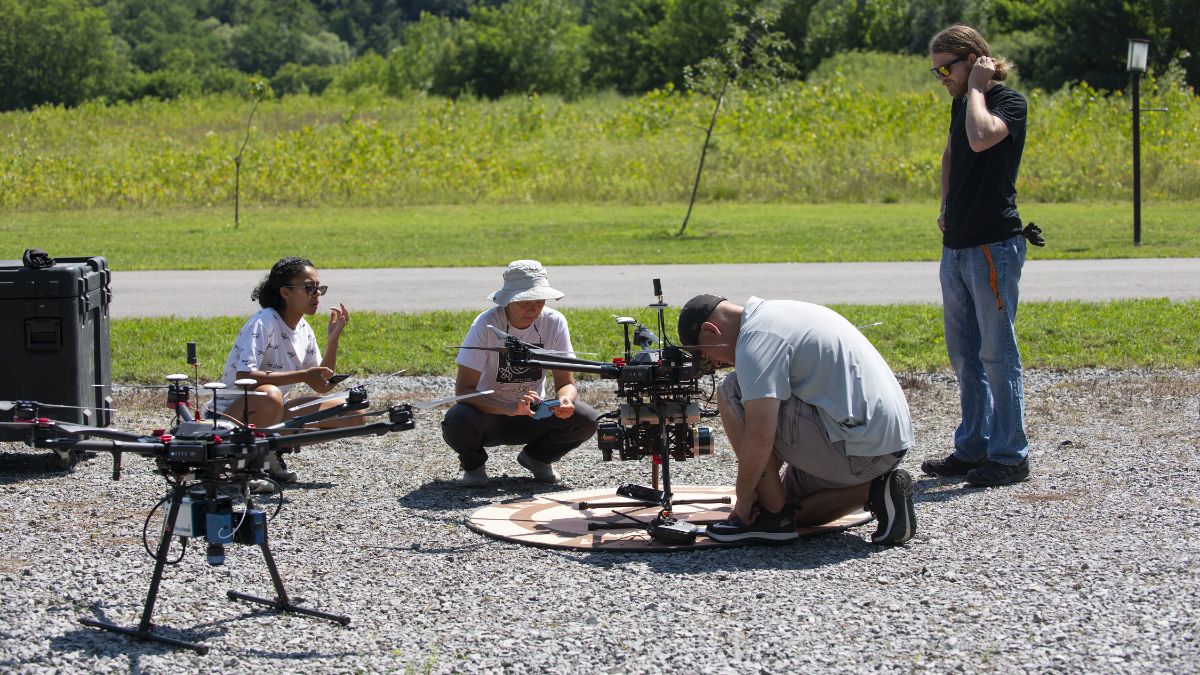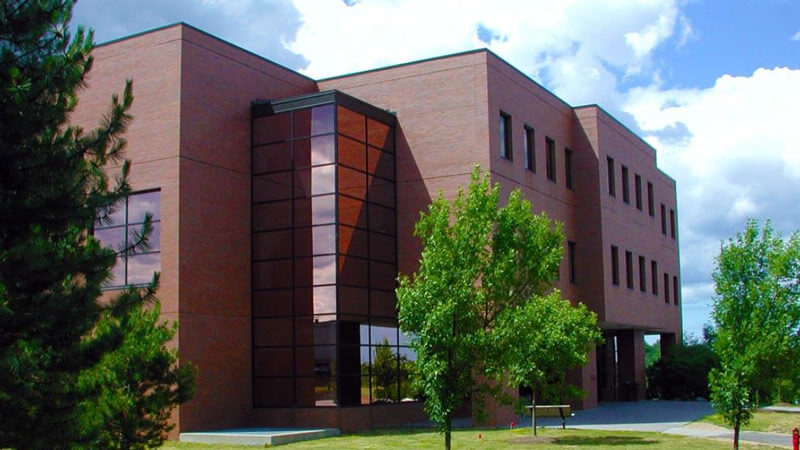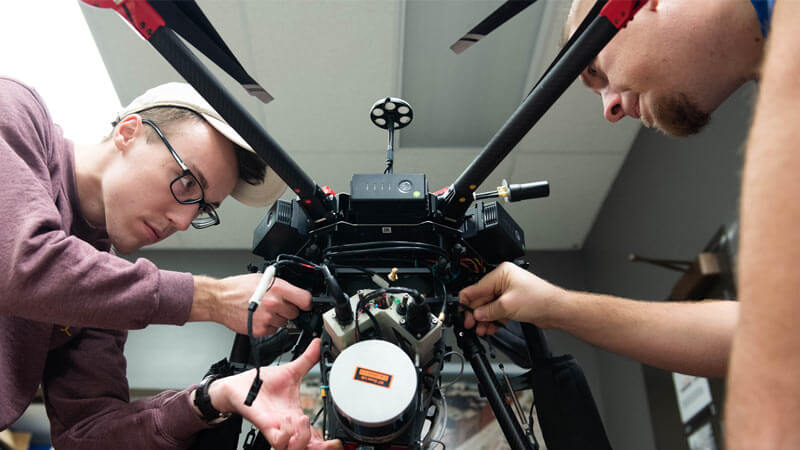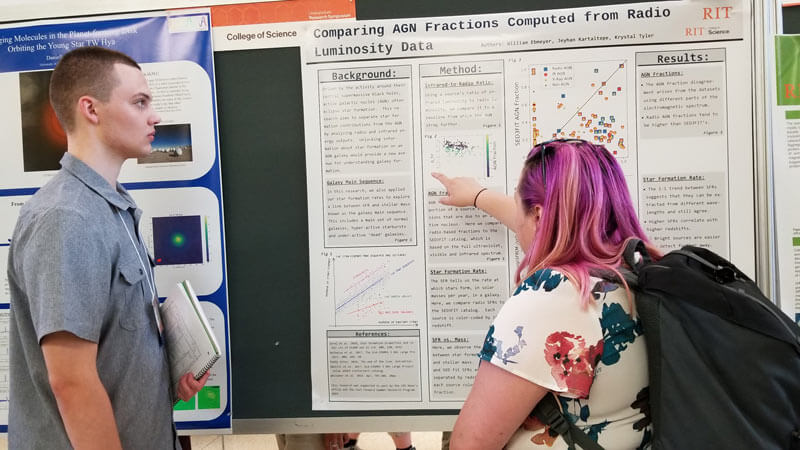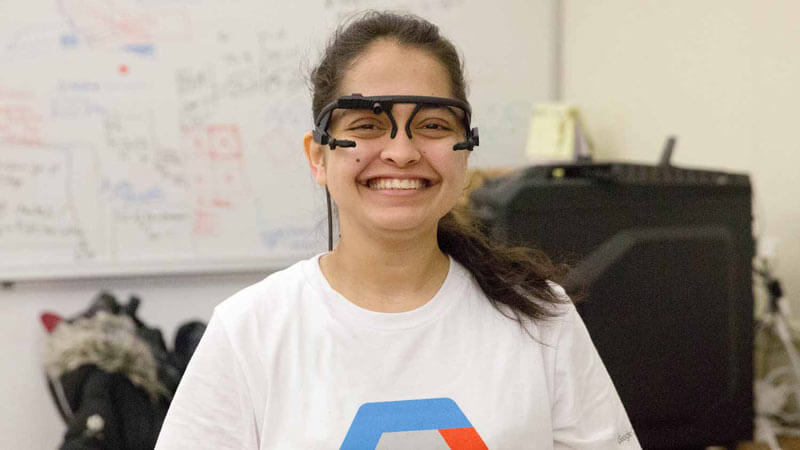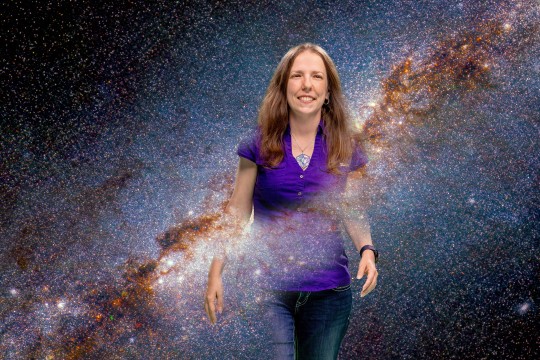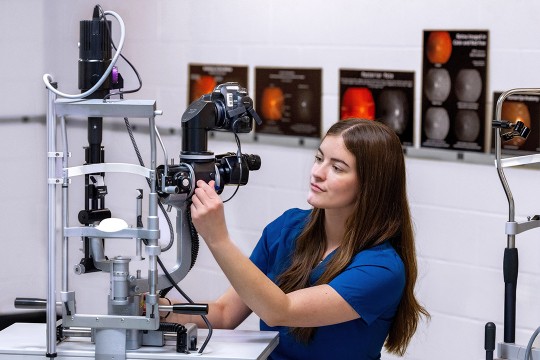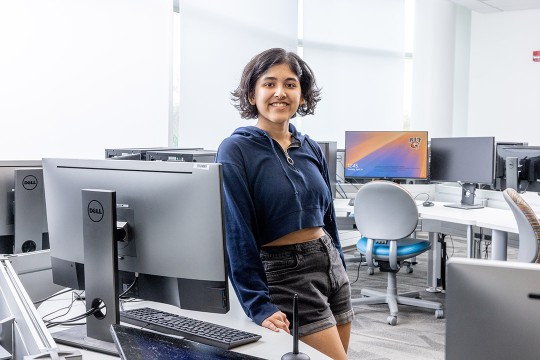Imaging Science
Bringing together physics, math, computer science, and engineering to understand and develop cutting-edge imaging systems such as satellites and detectors that record, process, display, or analyze image data.
1
RIT is the only university in the nation to offer an undergraduate degree in imaging science
30+
Years that RIT has offered master’s and Ph.D. degrees in imaging science
40+
Faculty engaged in teaching and research
4
Specialized laboratories for detector research
Research Centers and Labs
Chester F. Carlson Center for Imaging Science
Dedicated to pushing the frontiers of imaging in all its forms and uses. Through education leading to BS, MS, and Ph.D. degrees in imaging science, we produce the next generation of educators and researchers who develop and deploy imaging systems to answer fundamental scientific questions, monitor and protect our environment, help keep our nation secure, and aid medical researchers in their quest to conquer disease.
Learn more about the Chester F. Carlson Center for Imaging Science
Digital Imaging and Remote Sensing Laboratory
The DIRS Laboratory focuses on the development of tools to extract information about the Earth from aerial and satellite imaging systems with an emphasis on the application of science and engineering to solving end-to-end remote sensing problems using a systems engineering approach.
Learn more about the Digital Imaging and Remote Sensing Laboratory
Laboratory for Multiwavelength Astrophysics
The mission of LAMA is to foster the utilization and advancement of cutting-edge techniques in multiwavelength astrophysics by RIT faculty, research staff, and students, so as to improve human understanding of the origin and fate of the universe and its constituents.
Learn more about the Laboratory for Multiwavelength Astrophysics
Multidisciplinary Vision Research Laboratory
The Multidisciplinary Vision Research Laboratory aims to further the understanding of high-level visual perception, how humans extract information from images and the environment, and how that information is used in decision-making and to guide actions. The lab is equipped with a variety of eye-tracking instrumentation to record and analyze eye movements.
Learn more about the Multidisciplinary Vision Research Laboratory










